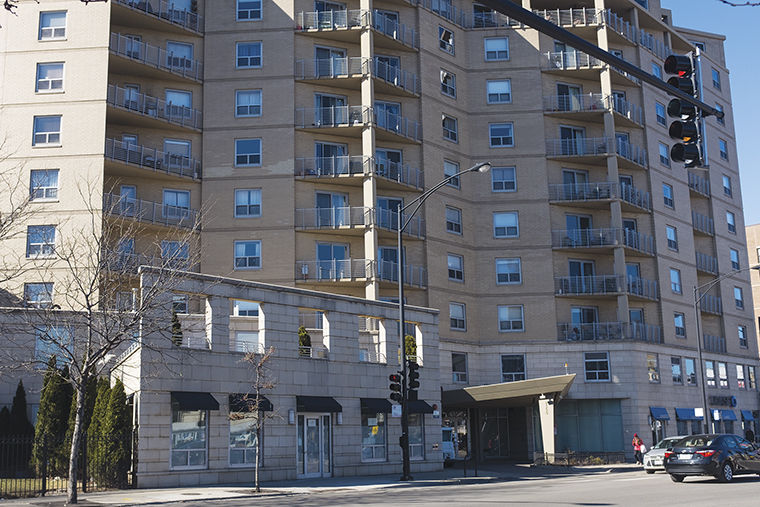Domestic violence shelter revamped, others face uncertainty
Apna Ghar, whose administrative offices showed above are located at 4350 N. Broadway in Uptown, recently expanded from the 15-bed shelter it previously operated.
February 6, 2017
Despite financial setbacks, an Uptown domestic violence shelter specializing in assisting Asian immigrants has recently expanded to offer services to more women and children.
Apna Ghar,meaning “our home” in Hindi-Urdu, was founded in 1989 by five Asian-American women and has unique services catered to minority women but welcomes all races.
“[Apna Ghar’s] mission is to provide holistic services and conduct outreach and advocacy across immigrant communities to end gender violence,” said Executive Director Neha Gill.
The organization recently celebrated the opening of its new location, which will offer support to domestic violence victims fleeing abusive situations.
Gill said Apna Ghar previously operated as a 15-bed emergency shelter for those who sought long-term protection. As its programs received more attention with more people to serve, the organization saw the need to expand, she added.
“We needed to provide more space because it’s an issue that affects all communities,” Gill said. “It affects the immigrant population in particular, which we’re specialized to serve.”
Brandon Lee, communications coordinator at Asian Americans Advancing Justice Chicago, said agencies specializing in Asian-American services are an “absolutely invaluable resource.”
“Organizations like Apna Ghar provide culturally relevant and mindful services, particularly for new immigrants,” Lee said. “There’s also language considerations they provide that another shelter might not.”
The new space is more “purpose-built” with a homelike environment and now has the capacity to house up to 30 people with comfortable, private areas for multiple families, according to Gill.
However, because Gov. Bruce Rauner and House Speaker Michael Madigan have been deadlocked over the state budget for more than a year and a half, the future of funding for various government services and programs including social services currently is unknown.
Statewide funding for domestic violence programming faces a nearly $20 million shortfall, according to a Jan. 23 mayoral press release.
Domestic violence service providers did not receive the state funding required by Illinois’ Fiscal Year 2017 contract, said Megan Rose, director of Public Policy and Strategic Initiatives at the Chicago Metropolitan Battered Women’s Network. Rose added that a possible solution to the budget issue is to include new sources of revenue.
Vickie Smith, executive director of the Illinois Coalition Against Domestic Violence, said it would become more difficult to recover if the budget stalemate continues.
“If [the state budget] doesn’t pass again, I suspect we’re going to begin seeing agencies have to close their doors for at least a period of time until the state budget does get straightened out,” Smith said.
Gill wants to increase programs and expand to the suburbs,she said payments from the state to Apna Ghar have recently stopped, which is concerning because the future of the budget is still unknown.
“We’ve now built this space, and want to provide the services.” Gill said. “We don’t want the situation with the state funding to stop us.”








